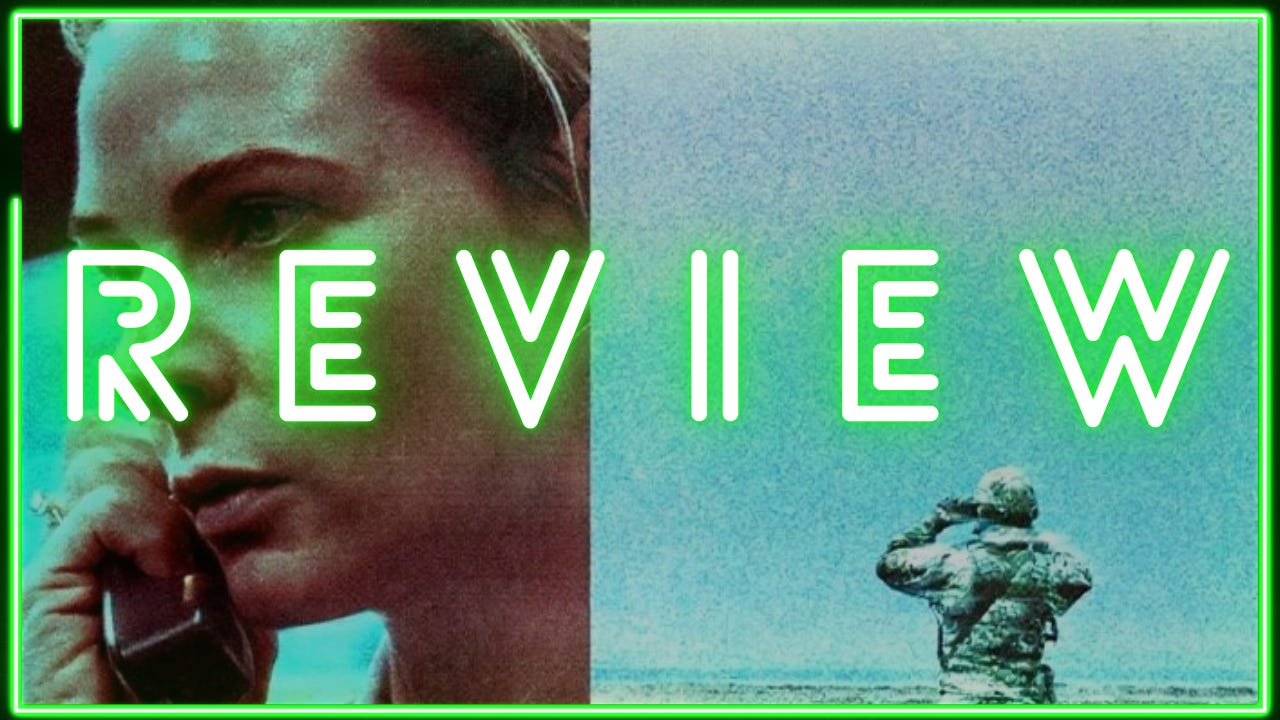Film Review: A House Of Dynamite
Not If. When.
INTRODUCTION
This is a quick review of the newly released film A House Of Dynamite. Please note that this is just one of the many movies I will have watched each year, and my initial grade for this film may change over time, for better or worse. To stay up to date on my thoughts about other movies and any potential changes in my opinion on this one, follow me on Letterboxd.
If you enjoy these reviews, I’d greatly appreciate it if you could share this newsletter with family and friends who might love receiving film reviews, classic movie lists, and Oscars projections straight to their inbox.
PLOT
Via Letterboxd: When a single, unattributed missile is launched at the United States, a race begins to determine who is responsible and how to respond.
REVIEW
It’s hard for me to think of a director who has more effectively mastered the art of crafting a thriller, especially one that explores the moral gray areas of leadership and war, than Kathryn Bigelow. The pioneering filmmaker, who became the first woman to win the Oscar for Best Director, has long been one of the most confident voices in this space. Yet it’s been eight years since her last feature. Now, that drought finally ends with the release of her latest film, A House of Dynamite, backed by Netflix.
The concept is simple and yet also terrifying. What if a nuclear missile was headed straight toward the United States, and no one knew who launched it or how to respond? The film explores how prepared, and unprepared, the government and military might actually be if such a nightmare scenario ever unfolded.
Bigelow examines the crisis from every possible angle, from the situation room, the military command chain, the team tasked with intercepting the missile, and the President himself. She does this with the help of an absolutely stacked ensemble that includes Rebecca Ferguson, Idris Elba, Anthony Ramos, Greta Lee, Tracy Letts, Jason Clarke, Jared Harris, Kaitlyn Dever, Gabriel Basso, and more. There’s even a cameo from Angel Reese!
The film employs a Rashomon-style structure, presenting three different perspectives on the events, from the missile’s launch to the final moments before impact. The first forty minutes are utterly gripping, but unlike the 1950 film its borrowing from the movie begins to lose momentum as it revisits the same events from new points of view without offering enough new insight to justify the repetition.
That said, the cast gives it their all (even if Ferguson and Elba’s accents occasionally distract), and Bigelow’s command of tension is as sharp as ever. The film is expertly directed and tightly edited, especially considering its ambitious structure. My only major technical gripe is the score, which feels oddly derivative of Conclave’s soundtrack. It’s not bad on its own, but the similarity pulled me out of the film several times.
Thematically, A House of Dynamite seems to want to make a statement about nuclear proliferation, but it ultimately stops short of saying anything profound beyond reminding us how terrifying the prospect of nuclear war would be. The film ends on a frustratingly ambiguous note, one that has left many critics leaving screenings asking aloud, “That was it?!” I found myself equally frustrated as the credits rolled.
I also couldn’t help but feel the film is somewhat out of step with the current moment. Much like After the Hunt, this feels like a story written for an era when government was still run by adults in the room. We’ve since spent a decade in this Trumpian era watching podcast demagogues and open bigots seize political influence, and that disconnect makes the film’s depiction of leadership under pressure feel strangely quaint.
There’s a lot to admire in what A House of Dynamite is trying to achieve. The technical filmmaking is strong, and it certainly succeeds at instilling fear about the worst-case scenario. But as it drags on, the film loses its momentum and concludes on a note that feels unsatisfying. I’m torn between calling it a barely positive or barely negative experience, but for now, I’ll land on a very soft B-. After eight years, I was hoping for a triumphant return from Bigelow but instead, we’ve gotten a lower-tier (but ambitious) entry in her filmography.
“TL;DR”
Pros: Kathryn Bigelow’s great skill at directing gripping thrillers shows; Entire ensemble is on their A game; Has a lot to admire in what its trying to convey
Cons: Loses steam the longer it goes thanks to its story structure; Ends on a completely unambiguous way that will inevitably leave most angry and frustrated with the film
GRADING




